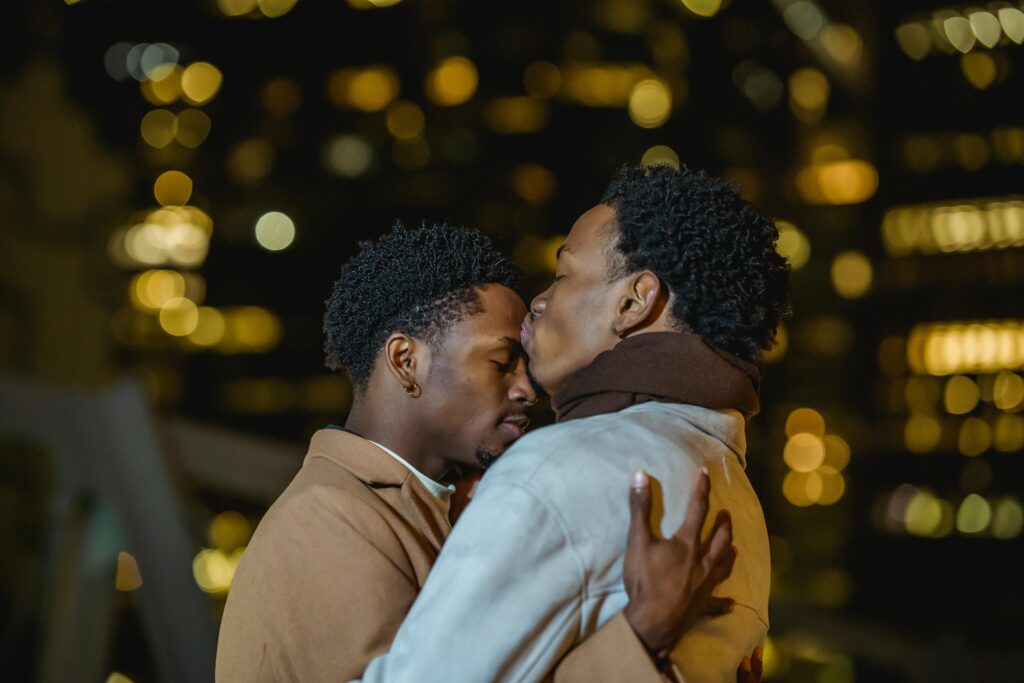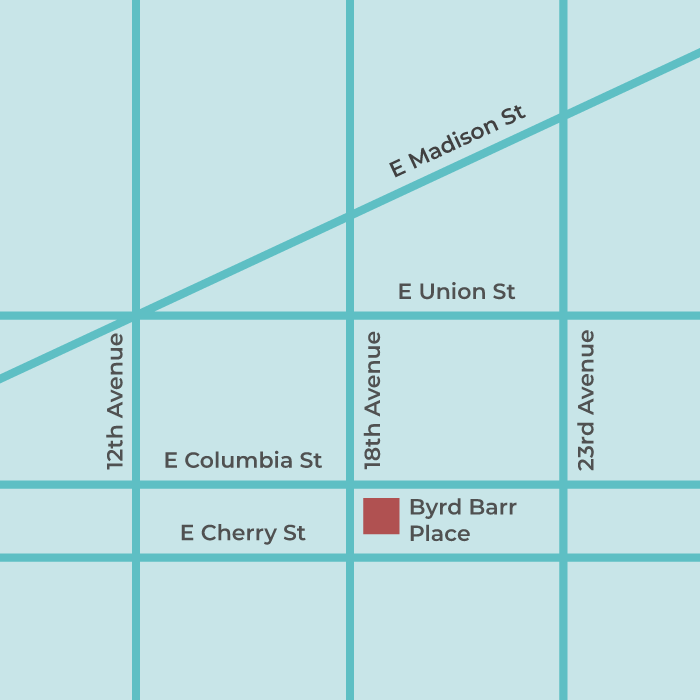Every June, we celebrate the beauty, love, brilliance and wisdom of the LGBTQIA+ community.
Byrd Barr Place’s vision of an equitable future is impossible without queer liberation. Our work and impact is built upon the resilience of our queer ancestors, and we stand in solidarity with our LGBTQIA+ partners and community as we create a Washington state where all can thrive.
Queer Washingtonians have been on the forefront of progress
Queer history is profoundly influential in the story of Washington state, and has been for hundreds of years. Since the 1800s, queer Washingtonians have been on the forefront of progress, consistently resisting discrimination in all its forms. In 1983, same-sex relationships were criminalized in Washington state. Yet, queer people continued to find spaces for self-expression, safety and acceptance.
In the 1900s, the LGBTQIA+ population in Washington boomed, creating new opportunities for generating collective power. When prohibition ended in 1933, bars catering to gay men began to open. The Double Header Bar, located in Pioneer Square, opened in 1934, and is believed to be the nation’s oldest continually operating gay bar until its closure in December 2015. Seattle’s first bars catering explicitly to lesbians sprung up during the 1950s.
The 1960s were a watershed decade in the fight for civil rights, and queer leaders continued to play a central role. In 1963, Bayard Rustin, a gay man and advisor to Dr. Martin Luther King Jr. organized the March on Washington, although his contributions are often overlooked.
Seattle’s gay community were nationwide leaders
Seattle’s first gay organization, The Dorian Society, was formed in 1967 and predated the Stonewall Riots, often considered the start of the queer rights movement, by two years. After the Stonewall Riots, Seattle’s gay community continued to be nationwide leaders in the queer liberation movement. Seattle was one of a few cities – in addition to Chicago, San Francisco and Los Angeles – that commemorated the first anniversary of the Stonewall Riots. In 1977, thanks to the growing momentum of queer liberation work, Mayor Wes Uhlman declared the city’s first official “Gay Pride Week,” held then and still today during the last week of June in honor of the Stonewall Riots.
As the 1970s progressed, there was an increased understanding that true justice is a collaborative venture, one where the destinies of all people are inherently intertwined. The Union of Sexual Minorities, formed in Seattle in the mid-1970s was a leading voice in connecting the oppression of sexual minorities with other oppressed people. The organization Black and White Men together, now called Men of All Colors and Cultures Together, formed in the late 1970s to fight racism within the gay community.
Trans rights have also been a key focus point for queer Washingtonians. In fact, the nation’s first transgender center, the Ingersoll Gender Center, opened in Seattle in 1979. Nondiscrimination legislation focused specifically on protecting gender identity and expression was passed in Seattle in 1986, the sixth city in the U.S. to do so.
A call for solidarity to address increasing harms
While Pride month is a special opportunity to celebrate the incredible progress of the past, it is also a time to recommit ourselves to the work ahead. The last several years have seen a proliferation of legislation across the country that directly harms queer people, and disparities from classism and racism that continue to persist.
According to the Trevor Project, 28% of LGBTQIA+ youth have experienced homelessness, which impacts every facet of their lives. The alarming trends around the murder of trans women, particularly Black trans women, which has doubled 2017 to 2021, points to the continued epidemic of fatal transphobia. Cases of violence against LGBTQ people have recently increased on Seattle’s Capitol Hill, long considered a safe neighborhood for lesbian and gay Seattleites.
Queer Black people’s experiences sit at the intersections of both race and sexuality, and are impacted by the intertwined forces of racism and homophobia. As a result, they are particularly vulnerable to these negative experiences. We are proud to stand in solidarity and partnership with organizations like the Lavender Rights Project and Taking B(l)ack Pride, that specifically create safe spaces to empower Black queer people.
As we imagine and work towards a liberated and equitable future for all Washintonians, we are committed to addressing these intersectional harms through resources, advocacy and service. This year, Byrd Barr Place celebrates 60 years of community service and activism, and we invite you to join us on this ongoing journey to create a Washington state where all can live and thrive.


